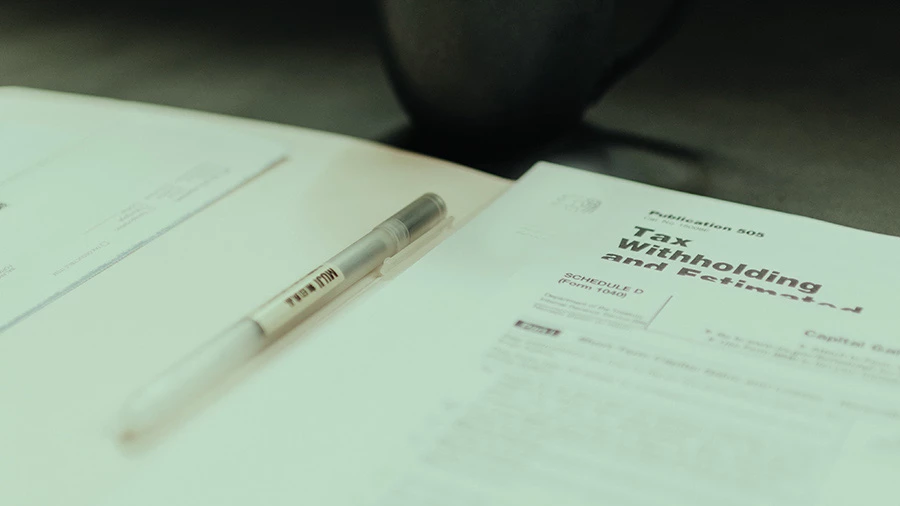In this monthly China tax brief, we highlight December 2023 tax and foreign exchange policies for supporting businesses, attracting talents, and facilitating cross-border investment and transactions.
Governments at all levels in China continue to issue preferential tax and foreign exchange policies to support businesses and individuals.
Notable initiatives include the recently renewed and clarified GBA IIT subsidy application measures by various GBA cities, as well as the two measures introduced by the State Administration of Foreign Exchange (SAFE) to streamline cross-border trade and investment.
Furthermore, the Ministry of Finance (MOF) and the State Taxation Administration (STA) have unveiled the 2024-2026 list of organizations eligible for pre-tax deductions related to public welfare donations. To aid small businesses in navigating these preferential policies, a comprehensive 2.0 version guideline has been issued.
Lastly, the Customs Tariff Commission of the State Council has disclosed the tariff adjustment plan for 2024, emphasizing the ongoing commitment to creating a conducive economic environment.
Multiple GBA cities open IIT subsidy applications for overseas high-end and in-demand talents with revised guidelines
In December 2023, several cities within the Guangdong-Hong Kong-Macao Greater Bay Area (GBA) initiated individual income tax (IIT) subsidy applications for eligible talents. Overseas high-end and in-demand talents employed in nine mainland cities of the GBA are eligible to apply for the GBA IIT subsidy for the tax years 2021 and 2022, with a retrospective application option for the tax year 2020. However, each city has its own application schedule and guidelines.Among others:
- Dongguan concluded GBA IIT subsidy applications on December 25, 2023.
- Zhuhai accepted applications from December 18, 2023 to January 5, 2024.
- Zhaoqing’s application period is from December 10, 2023 to January 20, 2024, with a supplementary information deadline of January 25, 2024 in case the application materials submitted are found to be incomplete.
- Foshan’s application window spans from December 25, 2023 to February 20, 2024.
- Guangzhou’s application period for this year is from December 29, 2023, to February 29, 2024.
- In addition, Dongguan, Foshan, Guangzhou, and Jiangmen have also renewed their measures for implementing the GBA IIT policy in their respective cities.
| Application Timeline of the GBA IIT Subsidy in 9 Mainland Cities | ||
| Cities | Start date | End date |
| Shenzhen | September 1, 2023 | October 20, 2023 |
| Huizhou | November 8, 2023 | November 24, 2023 |
| Dongguan | November 15, 2023 | December 25, 2023 |
| Zhaoqing | December 1, 2023 | January 20, 2024 |
| Zhuhai | December 18, 2023 | January 5, 2024 |
| Foshan | December 25, 2023 | February 20, 2024 |
| Guangzhou | December 29, 2023 | February 29, 2024 |
| Jiangmen | January 22, 2024 | March 15, 2024 |
| Zhongshan | To be announced in mid-January | |
SAFE unveils measures to facilitate foreign exchange management in cross-border trade and investment
In December, SAFE introduced multiple measures to streamline foreign exchange payments in foreign trade and optimize the management of foreign exchange under the capital account.On December 8, 2023, SAFE issued the Circular on Deepening Reform to Further Facilitate Cross-border Trade and Investment (Hui Fa [2023] No.28). This circular outlined four measures for foreign exchange payment and collection in foreign trade and five measures for optimizing foreign exchange management under the capital account. Initially piloted in certain regions, these measures have now been expanded nationwide.
Subsequently, on December 15, 2023, SAFE issued on the Circular on Expanding the Pilot Program for High-standard Opening-up of Cross-border Trade and Investment (Hui Fa [2023] No.30). This circular introduced five measures for current accounts and three policies for capital accounts. It extends some previously piloted programs to additional regions, including Shanghai, Jiangsu, Guangdong (including Shenzhen), Beijing, Zhejiang (including Ningbo), and Hainan.
The measures proposed in the two documents are summarized below:
| Measures | Hui Fa [2023] No.28 | Hui Fa [2023] No.30 |
| For current accounts |
|
|
| For capital accounts |
|
|
List of organizations eligible for pre-tax deduction of public welfare donations (2024-2026)
The MOF and STA have released the Announcement on Confirming the Qualifications of Red Cross Society of China and Other Mass Groups for Pretax Deduction on Public Welfare Donations in 2024-2026.According to the announcement, organizations that are eligible for pre-tax deductions of public welfare donations include:
- Red Cross Society of China
- All-China Federation of Trade Unions
- China Soong Ching Ling Foundation
- China International Talent Exchange Foundation
The list of qualified organizations is jointly published by the MOF, STA, and the provincial finance and tax departments, which is then valid for three years.
To ensure that public welfare donations can be deducted from taxable income, enterprises and individuals must confirm whether the organization accepting the donations is on the qualified list and obtain a qualified donation receipt.
China’s 2024 import-export tariff plan
On December 20, 2020, the Customs Tariff Commission of the State Council released the Announcement of the Customs Tariff Commission of the State Council on Adjusting the Tariffs in 2024 (the 2024 Tariff Adjustment Plan), to address domestic supply and demand while promoting high-quality development in the advanced manufacturing industry for the upcoming year.Key adjustments include:
- Tariff waivers and reductions: Certain medical goods, critical equipment, key parts, resources in short supply, and select agricultural products will enjoy tariff waivers or reductions to bolster strategic sectors.
- Tariff increases: To align with domestic demands and foster domestic industry growth, specific commodities, such as ethylene, propylene, and liquid crystal glass substrates below 6 generations, will witness tariff increases starting January 1, 2024.
- Provisional import tariff rates: Commencing January 1, 2024, 1,010 items, encompassing medical products, key equipment and parts, resources in short supply, and certain agriculture products, will be subject to provisional import tariff rates, lower than the most favored nation (MFN) tariffs.
- Conventional tariff rates: Goods from 30 countries or regions, covered by 20 free trade agreements and preferential trade arrangements, will be subject to conventional tariff rates.
- Preferential tariff rates: Forty-three least-developed countries (LDCs) with established diplomatic relations with China will continue to benefit from preferential tariff rates to accelerate their development. However, zero-tariff treatment for Vanuatu will be discontinued.
- Tariff quota management: Eight categories of commodities, including wheat, will remain under tariff quota management, with unchanged tax rates.
- Export tariffs: China will impose export tariffs on 107 commodities, including ferrochrome, with 68 of them subject to provisional export tariff rates.
To read more about China’s 2024 tariff plan, see our China Briefing Article: 2024 Import-Export Tariffs in China
Two departments release updated 2.0 version of small business preferential tax guidelines
On December 19, 2023, the MOF and STA issued the Guidance on Preferential Tax Policies for Supporting the Development of Small and Micro Enterprises and Individually Owned Businesses, (2.0), consolidating 50 preferential tax policies.By the end of October 2023, China had consolidated and optimized a total of 77 preferential tax and fee policies. The updated guidelines (2.0 version) sorts out and summarizes 50 policies involving small and micro enterprises and individually owned businesses, focusing on four key aspects:
- Reducing the tax burden
- Promoting inclusive financial development
- Supporting innovation and entrepreneurship
- Tax incentives for key groups to start businesses
Also read
- China Monthly Tax Brief: November 2023
- China Monthly Tax Brief: October 2023
- China Monthly Tax Brief: September 2023
- China Monthly Tax Brief: August 2023
- China Monthly Tax Brief: July 2023
- China Monthly Tax Brief: June 2023





















